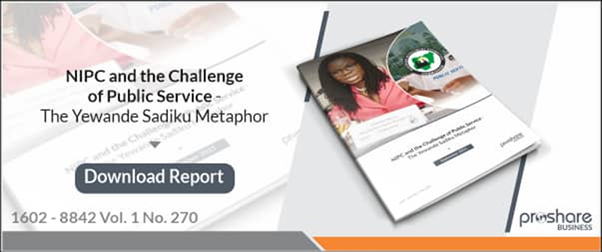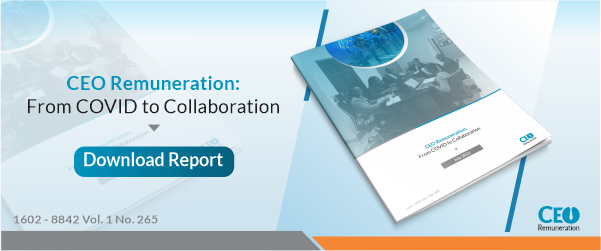Tuesday, September 28, 2021 / 08:37AM / OpED by Georgina Ehuriah-Arisa*/ Header Image Credit: Pulse.ng
Prof.Kalu Uka introduced me to Victor Hugo's Les Miserables when I was an Englishand Literary Studies major at the University of Nigeria, Nsukka in the early1980s. At that time, UNN was brimming with globally rated intellectuals and myHead of Department was Prof. Chinua Achebe. Prof Kalu Uka painted alarger-than-life image of Jean Valjean, the petty thief who escaped from prisonand assumed other identities to evade the law. Having reformed himself and becamea respectable member of society and a do-gooder, the dutiful and diligentpublic servant, Javert the policeman, who relentlessly pursued Valjean so thatthe law could take its course became the villain. At the point when Javerttracked Valjean down to put handcuffs on him, Javert, a man inexorablycommitted to due process and justice, became conflicted and committed suicide,so that the "good man" could escape. In his mind, that was the onlyway out.
I did notfully grasp the depth of this tragedy until my years in decision makingcapacity in the Federal Civil Service when I also carried the full weight ofthe burden of a public servant who must discharge his or her duty according tothe law or succumb to the accepted codes of behaviour dictated by the politicalelites, a moral burden that Javert could not bear.
I reallydoubt whether Nigerians give thought to the heavy burden of theresponsibility under which public officers labour as they must, todischarge their duties according to laid down laws, rules and procedures, whilebalancing the expectations and interests of their stakeholders.
Thesignificance of Javert's conundrum in Hugo's Les Misérables has of recentpreoccupied my mind, and it seems to be the inevitable fate of any Nigerian whotakes up the mantle of public service and pledges allegiance to the law andaccountability, rather than popularity and political expediency. The uprightpublic servant is thus placed between a rock and a hard place. Resist, and face an almost certaincareer suicide or succumb and commit a form of spiritual suicide, withthe ubiquitous possibility of facing the full wrath of the law.
The caseof Yewande Sadiku, who rounded up her tenure as Executive Secretary of theNigerian Investment Promotion Commission on Friday, September 24, 2021; and howNigerians rate her performance in public office should be of interest to thosewho yearn for improved governance, greater transparency and accountability inthe Nigerian public sector. This isparticularly significant because her tenure was held up for scrutiny, based ona flurry of petitions from stakeholders with whom she had locked horns for mostof her tenure. Who are these stakeholders and what did they want fromYewande?
Atinduction programmes for newly appointed Accounting Officers, the management ofstakeholders is a permanent feature among the topics of discourse. In my book 'On Merit' (2020), I described my experience of managingthe interests of stakeholders in a public sector setting thus:
"APermanent Secretary's life is akin to that of an errand boy or girl answeringto the public, the principals, the National Assembly, contractors, suppliers,labour unions, family, community, traditional rulers, religious institutionsand other compelling interests...Within the Nigerian context, our variouspublics will decide how well you discharged this duty based on how well you mettheir individual demands."
The waywe interpret public service has of recent become dangerously wrapped around howsuccessful an Accounting Officer is in meeting the onerous demands of theimmediate stakeholders and making them happy. In the public, as in the privatesector, the most critical stakeholders that have the potential to enable a CEOto achieve corporate objectives but can conversely distract the CEO and makehis or her life hell on earth are the Boards and the Unions.
Governing Boards are part of the statutory corporate governance structure ofseveral public agencies. Their membership is defined by the enabling laws ofeach agency, but most would usually consist of ex-officio and non-governmentalmembers. Ex-officio members are public officers who are statutory members representinggovernment Ministries, Departments and Agencies (MDAs) with a vested interestin the mandate of the Agency in question.
However,non-governmental board members are usually appointed by the President from thegeneral public, to provide an independent perspective on the operations of theMDA and ensure that the public's views are reflected in the crafting of publicpolicies. Consequently, they are usually politicians from the ruling party andare not required to possess any expertise or in-depth public sector knowledgeor experience. The remuneration of Board members is stipulated by extant law orpolicy circulars, and they serve on an ad-hoc basis. The Public ServiceRules separate the functions of a Governing Board from the duties of themanagement of an agency.
TheGoverning Board headed by a chairperson, is charged with providingpolicy guidelines and guidance, effective monitoring of policy implementation,budget processing and ensuring that government policy directives relating tothe functions of an agency are effectively executed. The Chief ExecutiveOfficer (CEO) of the government agency is the policy adviser, accountingofficer and head of administration. Supported by the departmental heads, theCEO is responsible for the day-to-day operations of the agency.
The bestpractice in corporate governance is for Boards to operate within theirspecified functions, duties and responsibilities and engage with management inan atmosphere of mutual respect and transparency, but this is hardly the case.The major challenge in the relationship between technocrats and Governing BoardMembers is the inability of political appointees to understand and accept theextent of their limited roles in the corporate governance of parastatals and torestrict their activities within those roles.
Consequently,in parastatals where Board and Management relationship is strained, thescenario of corporate governance is akin to a minefield due to the divergentinterpretation of their roles by such Governing Boards. At the induction ofBoard members of some Federal MDAs in May 2021, the Secretary to the Governmentof the Federation (SGF) expressed the concern of the Federal Government at the emergenceof unwholesome developments, as the SGF had done at several such inductionsbefore. One does not need to look further than the issues he pointed out, whichI have reproduced below to identify the cause of the toxicity in therelationship between MDA Boards and Management:
- undueinterference by board chairpersons in the day-to-day activities of the agencies;
- blatantdisregard for extant regulations guiding and restricting board meetings;
- issuingdirectives to staff without recourse to the CEOs, thereby undermining authorityand creating disharmony among personnel;
- imposingdisciplinary measures to CEOs without recourse to laid down procedures andapproval from supervising authority; and
- using thelabour unions as agents of distraction in the parastatals.
Despitemaking it clear to board members that their membership of the Boards waspart-time and considered a service to the nation and a privilege, board membersregard their appointments as a reward for their services to the party. Theextent of this reward and their interpretation of how it should evolve isquickly made known to the CEO of the agency, who is expected to find a way toaccommodate their interests in order to enjoy a cordial relationship or the obversewill be the case.
YewandeSadiku had a nightmare board, harbouring some aggressive grassrootspoliticians, who did not have any regard for the abundance of consideredopinion of top Civil Servants representing diverse interests on that Board. Allthe emerging worrisome issues mentioned by the SGF became missiles and weaponsof war thrown at the hapless Executive Secretary. The only aspect they couldnot achieve was removing Ms. Sadiku from office, and this was not for a lack oftrying.
Theevents that spilled into the public domain, be they petitions, union lockouts,and court cases emanated from that festering toxic relationship betweenmanagement and non-government members of the Board. It did not matter that Ms.Sadiku knew her job and was quietly but determinedly making enduring reformsin Nigerian Investment Promotion Commission.
YewandeSadiku was appointed Executive Secretary of NIPC from the private sector, whereshe had a high-profile job as an Executive Director in Stanbic IBTC Bank. It ison record that she suffered a significant reduction in income when she took thepublic service position. Described variously by those who know her track recordas a knowledgeable, respected, upright and accomplished investment banker,there was no doubt that she understood her assignment in NIPC which is chargedwith encouraging, promoting and coordinating investments in Nigeria. Ms. Sadikuhad the qualification, experience, capacity, and ethical orientation to excelas the Executive Secretary of NIPC, but no sooner had she settled down to workthan the problems started. She was battled by political appointees on the NIPCBoard, Union Leaders and staff members who failed promotion exams. She waslocked out of her office twice (for 11 days the first time and 6 days thesecond time) and petitions masterminded by two members of the NIPCBoard saw her being interrogated by every conceivable investigative arm ofGovernment. As at date, Yewande Sadikuhas earned the unenviable title of one of the most investigated public officersin Nigeria.
Nigeria'shighly-rated investigative online newspaper Premium Times released a detailed and in-depth report, theoutcome of months’ long investigations and found that the allegations againstMs. Sadiku, for which the various agencies were contacted, were unsubstantiatedand no wrongdoing was established against her. According to the Premium TimesReport:
"Afterreviewing tons of documents and interviewing persons familiar with Ms. Sadiku'sstewardship at the NIPC, this newspaper was able to determine that her troublesmay have little to do with any wrongdoing. Rather, she appears to have beentargeted for her principled stance on the running of the NIPC. Her traducers,we found, became angry with her because she insisted on due process andprofessionalism, sticking to rules in procurement, avoiding corruption, nevercutting corners and never allowing anyone to do so."
Thisfinding by Premium Times was corroborated by staff of NIPC who were interviewedand were quoted thus:
"Ms.Sadiku has consistently stuck by the rules making it difficult, if notimpossible for anyone to illegitimately benefit from contracts, employmentquotas and other illegal largesse to which appointees usually feel entitled".
I cannotbut totally agree with this assessment having myself represented a Ministry onthat Board within the period in question and did not witness any of thosespurious malfeasances levelled so maliciously against Ms. Sadiku. At everypoint in time the affairs of NIPC were under the supervisory oversight of theMinistry of Industry, Trade and Investment which sanctioned Ms. Sadiku'sactions in accordance with laid down provisions and procedures in extant lawsand the regulations that guide public sector operations and administration. IfYewande Sadiku had not demonstrated competence or had committed misconduct onthe job, she would not have lasted a day longer than the release of anindicting investigation report.
No doubtthe indignity meted to her in the twilight of her tenure of office has startedto draw the angst of Nigeria's professionals in the private sector, and theyhave risen to defend her. I have read several articles analysing what went downbetween Ms. Sadiku and NIPC and one common denominator runs through them: the demonizationof the Nigerian public sector for head-hunting first-rate talents from theprivate sector only to rubbish them. I am pained that Yewande Sadiku is nowbeing held up as a metaphor for a broken public service. One of such articleswent as far as describing the Nigerian public sector as "the professional's graveyard".
To saythat the Nigerian public service does not have tolerance for Nigeria'sbrightest and best professionals because the system is bogged down withbureaucracy, lacks innovation and is obsessed with a culture of gratificationis simply begging the question. Yewande Sadiku's experience in NIPC was a taleforetold, a well-written script straight out of the SGF's list of worrisomeantics deployed by disgruntled Board members to force their way on management.
WhenBoard members are appointed, they come with a list of expectations and astudied scoping of the opportunities that could be exploited in the agency.After all, the appointment was given to them as a reward. However, they mustcontend with the CEO and, if it is Yewande Sadiku, then every action must lineup with the laid down rules and procedures.
YewandeSadiku acted with propriety, and it was because the non-government boardmembers hit a brick wall in terms of their expectations that they engaged herin a battle of wits. What never fails to amaze me is why Government hesitatesto wield the big stick when appointed board members constitute a cog in thewheel of administration of government business.
It is anaberration for a government-appointed board member to sue the same Governmentto court and continue to sit on the Board. There are laid down channels forgrievance redress in the public sector and a conscientious objector who is notsatisfied with the outcome must resign or be shown the way out. The tardiness in dissolving that Board when aserving member appointed by Government sued the Government was what escalatedthe impunity and rascality exhibited by the dramatis personae.
Thepublic sector is the repository of the largest number of Nigeria'sprofessionals. Thousands of professionals, some of whom graduated magna cumlaude from the best institutions within and outside Nigeria, are making theircareers in the public sector. Through tenacity, resilience and excellent hardwork, some of us who joined the Federal Civil Service as impressionable younggraduates made it to the peak of our careers. I belong to the lastgeneration of fresh graduates selected through a competitive, merit-based,nationwide recruitment process and employed two months after National YouthService in the mid-eighties. Within months of being employed, we were given carloans that bought brand new Volkswagen Beetle cars, and we were allocatedfurnished apartments in Federal Government-owned housing projects in choiceresidential areas of Lagos. A few years later, we could apply for FederalGovernment Housing loans which were sufficient for bungalows. The effect of allthose safety nets was that civil servants of my era were more laid-back interms of our expectations from the system. We were not involved in activeunionism.
However,that is not the case presently. With the advent of monetization policy, workersin the public sector have, since 2006, been left to fend for themselves withpay checks that could not catch up with inflation. This has given rise to abrand of aggressive in-house unionism practiced in most MDAs which is typicallymeant to wrestle out of Management extra-regulatory and extra-budgetary welfarepackages to supplement regular income. If a CEO is unlucky, the unionleadership may exhibit such rent-seeking behaviour as to collaborate withGoverning Council/Board members to sabotage Management and be used as pawns ina power play.
Given thatsuch was the case with Yewande Sadiku, it should not be used to characterizethe entire public sector or say that civil servants always lend themselves asinstruments to frustrate and crush bright minds that come to serve in thepublic sector. However, the officers of NIPC who descended to such despicablelengths as to write false petitions and connive with Board members againstManagement have demonstrated disloyalty, lack of character and integrity. Thereshould be consequences when career officers hide behind unionism to actmaliciously in cahoots with outside forces, to bring management down. Thisought to be dealt with by Management and the public service leadership asappropriate, to restore discipline in the system.
Ofrecent, I have made the acquaintance of several high-performing Nigerianprofessionals in the diaspora. Every single one of them expresses the desire todo in Nigeria the same job for which they are appreciated and handsomelyremunerated in the diaspora. However, they would usually express apprehensionabout the Nigerian work culture and the fear that what happened to Arunma Oteh,or even worse, would befall them in Nigeria's public service.
It isabout time this kind of narrative as the putative experience of brightprofessionals who are appointed to serve in Nigeria's public sector is changed.That Yewande Sadiku made it clear she did not want a second term of officealready speaks volumes of what she endured in the hands of her traducers thesepast five years.
What isit about us Nigerians that we say we want good governance, incorruptibleleaders and an accountable and transparent public service, but we fail tosupport those who can deliver it, preferring instead those who know how toplay the usual games? Yewande Sadiku belongs to the shrinking minority ofNigerian technocrats who are courageous and committed to fixing the system, butend up being harangued, harassed and scared out of public office.
Commentingon this matter under the title: "Troubled Tenures of Female Appointees", Zainab Suleiman-Okino pointed out aworrisome trend in the experiences of female public officers:
"Myconcern is the way some public officials are harangued, taken to the cleanersand their reputation smeared because of the self-serving interests of a few,who are probably averse to change or are being remote controlled by higher authoritiesfor the same selfish interest".
YewandeSadiku has a lot to be proud of. There is no doubt that she came to the publicsector with the intent to serve differently and that she led by example,shunning personal enrichment and demanding the same of her Board, Managementand staff. That requires courage and forthrightness.
It is onrecord that she reformed the administrative procedure of the Pioneer StatusIncentive, which as a result has increased transparency and efficiency in theprocess. She initiated a reform of Nigeria's Investment Treaties to align itwith the principle of attracting Responsible, Inclusive, Balanced andSustainable Investments (RIBs). She is also credited with initiating a reformof the One-Stop Investment Centre (OSIC) a platform where investors can resolvetheir challenges with Government agencies. Yewande Sadiku midwifed thepublication of a Book of States showcasing the key investment prospects of eachof the 36 States and the FCT and where each has comparative advantages. Shesteered the NIPC to achieve its present rating of one of the most transparentpublic agencies in Nigeria.
YewandeSadiku herself expressed satisfaction while summing up her performance thus:
"Iam fulfilled that despite the distractions, I will be leaving the NIPC betterthan I met it".
Althoughshe has been bruised for trying to bring about change, just like those in thepast who trod a similar path, she should not be deterred because there is amultitude of people, international agencies and multinationals watching. It isbecoming an established trend for Nigerian public officers who breasted thetape without tripping to subsequently find themselves sitting pretty in thechilled offices of international agencies as globally relevant leaders.
For thatreason, Ms. Sadiku should hold her head high that despite the trial of earth,wind and fire she endured, she left an impeccable and unblemished record ofpublic service. When a public officer defies entrenched interests andprioritizes the public good while serving in an exemplary manner like YewandeSadiku has done, Nigerians should celebrate, honour and hold such publicofficers up as role models, in a nation where heroes are scarce. Our failure todo so would be tantamount to encouraging public officers to undermine the veryfoundations upon which the public sector bureaucracy rest - the laws, rules andprocedures.

About theAuthor
Barr. GeorginaEHURIAH-ARISA, MON, NPOM, regarded as one of Nigeria's best in publicservice, is a Retired Federal Permanent Secretary and Public Sector ManagementSpecialist. She is the author of the book "On Merit" and can be reachedon Twitter via @georginaehuriah
Related News
1. NIPC and theChallenge of Public Service - The Yewande Sadiku Metaphor -Proshare - Sept 05, 2021
2. SPECIAL REPORT: A Nigerian official reforming NIPC and her many battles - Premium Times - Aug 26, 2021
3. NIPC's Journey Under Yewande Sadiku'sLeadership -BusinessDay - Aug 17, 2021
4. Permanent Secretary in the Ministry of Interior,Georgina Ehuriah-Arisa unveils her book 'On Merit' in Abuja - Pulse Nigeria, Sept 18, 2020
5. #FixPolitics Condemns EFCC's Harassment of NIPC Boss
6. NIPC CEO Yewande Sadiku Neither Detained nor Arrested by EFCC - NIPC
7. NIPC Makes Q2 2021 Mandatory Discourse Pursuant to Freedom ofInformation Act
8. NIPC Issues Report on Pioneer Status Incentive Applications for Q2 2021
9. NGX, BPE, NIPC Collaborate to Host Investors' Webinar
10. NIPC Publishes Book of States 2020
11. NIPC, FIRS Inaugurate Joint Committee on Pioneer Status Incentive
12. NIPC Releases Report of Investment Announcements, 2020
13. NIPC Is Not Promoting Any Investment Ponzi or Matrix Package
14. Free Trade Zones: NEPZA Secures NIPC's Partnership
15. Federal High Court Discharges Interim Order and Strikes Out Suit AgainstNIPC
16. NIPC Issues Report On Pioneer Status Incentive for Fourth Quarter 2018
17. SEC, NIPC Collaborate to Attract Investors
 Lagos, NG • GMT +1
Lagos, NG • GMT +1











 2436 views
2436 views











 Sponsored Ad
Sponsored Ad
 Advertise with Us
Advertise with Us









